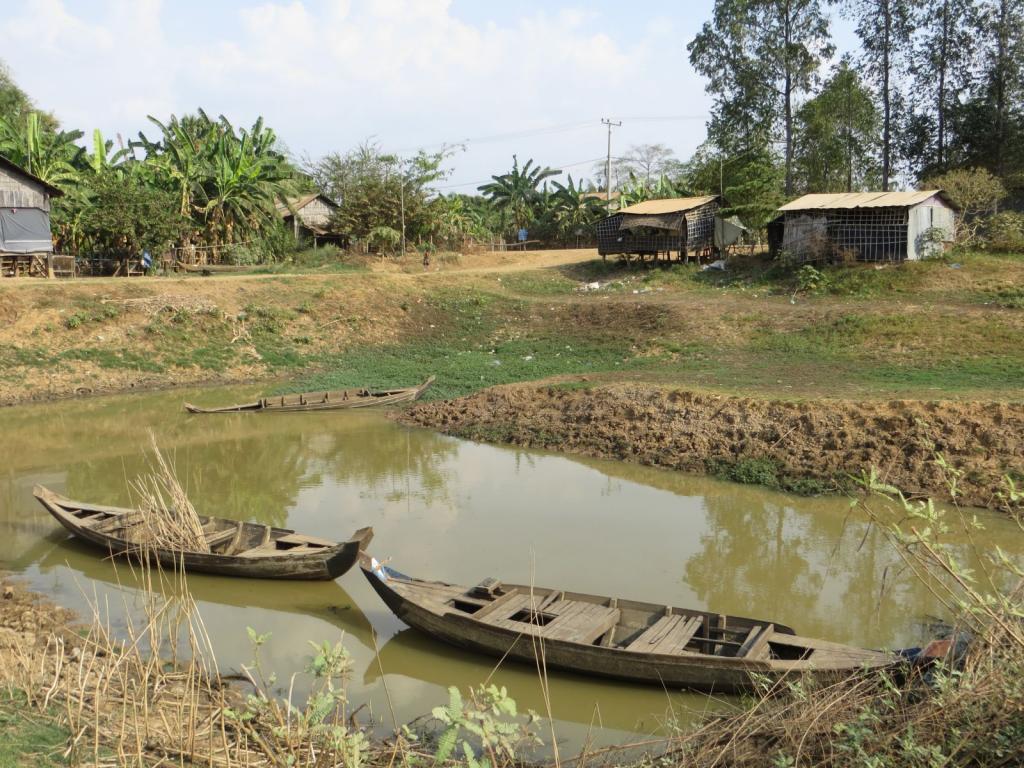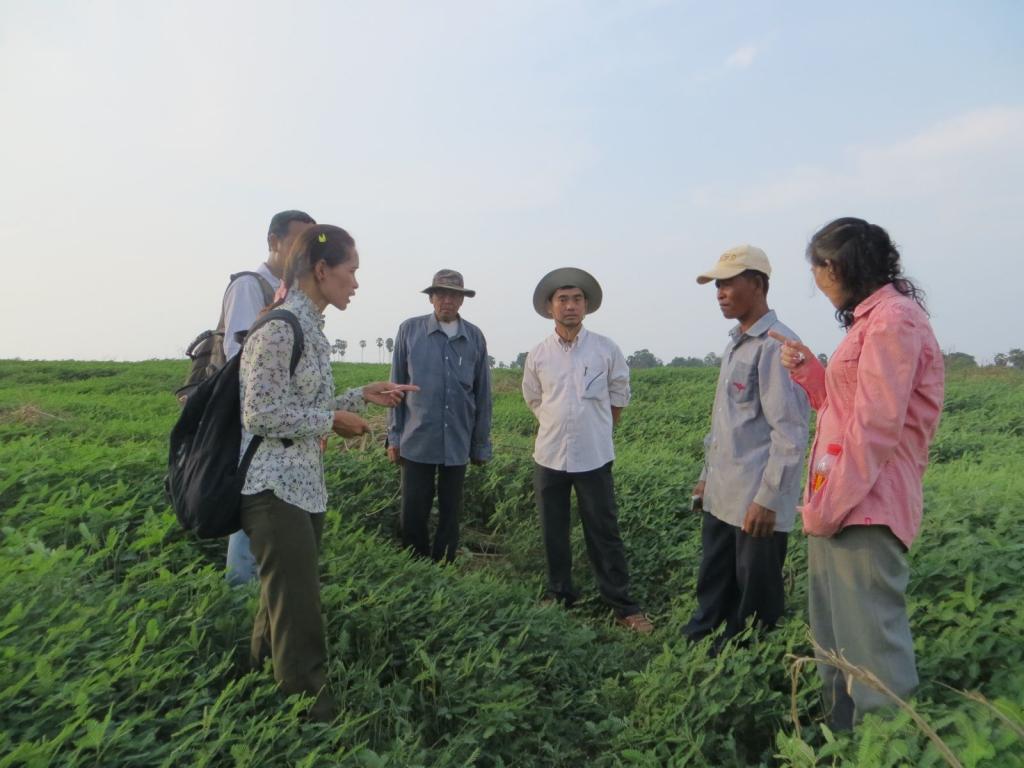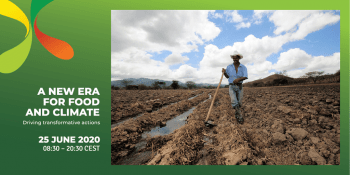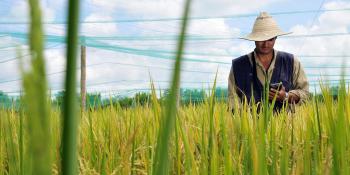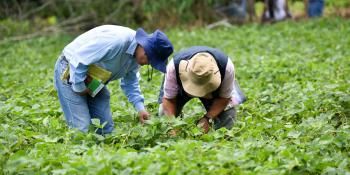Cambodia Climate-Smart Village enhances livelihoods with better water management
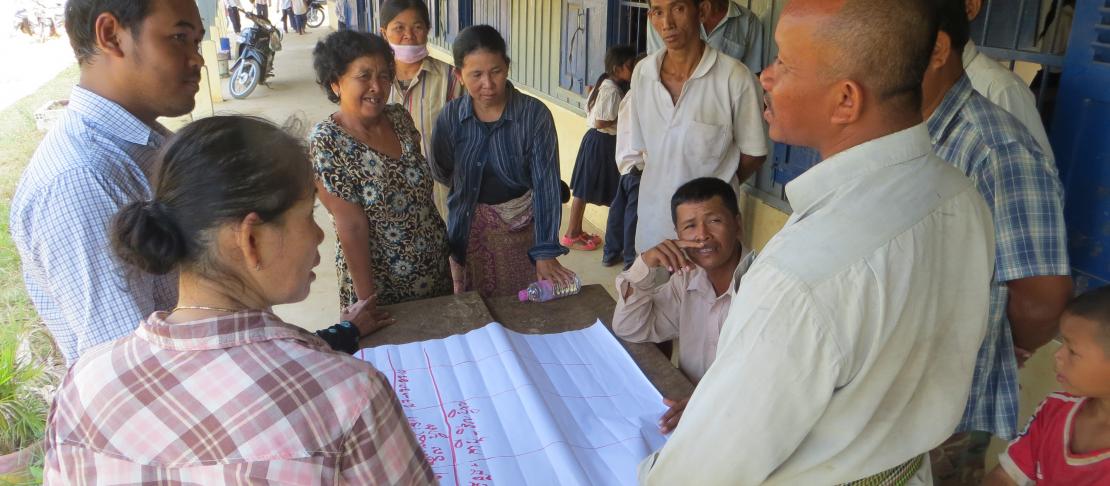
Researchers in Rohal Suong Climate-Smart Village in Cambodia are working with the local community to improve water management in addressing climate change issues.
Climate change affects different communities in different ways. Before a community could identify practices and technologies that could help them cope with climate change, they must first identify the main climate challenges.
To this end, a situation analysis and needs assessment survey was conducted in Rohal Suong village, Cambodia, in 2014. Farmers from the village identified increase in temperature, strong winds, irregular floods and drought spells as the main climate risks in the region. The farmers also realize that climate change would have negative impacts on their water resources, which in turn will affect their crop yields, livestock production and home garden outputs.
Rohal Suong has a number of ponds, several of which are privately owned by individual farmers. Some are community ponds, which provide water for domestic use, livestock production and gardening. Recently, these community ponds have become increasingly shallow due to soil erosion. In addition, the Ministry of Water Resources and Meteorology announced that dry season weather in 2016 could bring temperatures up to 41°C. The shallow depth and higher temperatures have resulted in ponds drying up faster, as compared to the last 10-20 years.
The school pond in its current state is small, shallow and will often completely evaporate during the dry season. Rehabilitating this will improve water access for families in the area. Photo: Eam Dyna (WorldFish)
“I learned that the dry season this year will be hotter and drier than previous years. We farmers are facing a lack of water for animal and crop plantations. Some crops and vegetables have already been damaged by the hot weather and lack of water,” says Mrs Phon Phorn, a farmer from Rohal Suong.
As Rohal Suong is one of the six Climate-Smart Villages (CSVs) under the CGIAR Research Program on Climate Change, Agriculture and Food Security in Southeast Asia (CCAFS SEA), the community people and village leaders have decided to rehabilitate two community ponds as one of the climate-smart agriculture (CSA) practices in the village. This would increase the amount of water available to community members for a longer period of time.
The village head, community leaders, school committee members and other key stakeholders first brought up the idea to restore the community ponds during a participatory community planning session in March 2016. It was decided that the school committee, community fisheries and water user groups will play lead roles in rehabilitating the ponds. The community and stakeholders will cover the cost of this project, with the project leader WorldFish, providing only a small portion of funds needed.
The community committees submitted a proposal to the commune and district authorities and the provincial Fishery Administration Cantonment to rehabilitate the community ponds; and these were approved. Late in April, work on increasing the depth of the Boeung Voer pond, which is on the border of Doung Mear village and Rohal Suong, began. Restoration of the school pond in the middle of the village is expected to begin by June or July.
Team members and community stakeholders discuss the restoration project at the field site. The rehabilitation of the two community ponds has been a participatory process involving the local stakeholders. Photo: Eam Dyna (WorldFish)
Water from the Boeung Voer pond could be used to irrigate crops in both the Rohal Suong and Doung Mear. The pond will be also used as a fish refuge pond, improving the fisheries resources available to both villages. On the other hand, the school pond will store more water for a longer period of time, making water available for at least 50 poor households living in the area.
The ponds will also allow farmers, including women and low-income families, to grow vegetables for both household consumption and for selling throughout the dry season. It is hoped this will promote gender equality and supplement family incomes in the village. The community committees and community group leaders also plan to grow trees around both ponds to prevent erosion, and to develop the regulations for pond water use.
Read more:
- Resource sharing for dry season crops: a tale of the village pond
- Cambodia launches a Climate-Smart Village
- Plant doctors to the rescue in integrated pest management
Dyna Eam is a researcher with WorldFish in Phnom Penh, Cambodia.

